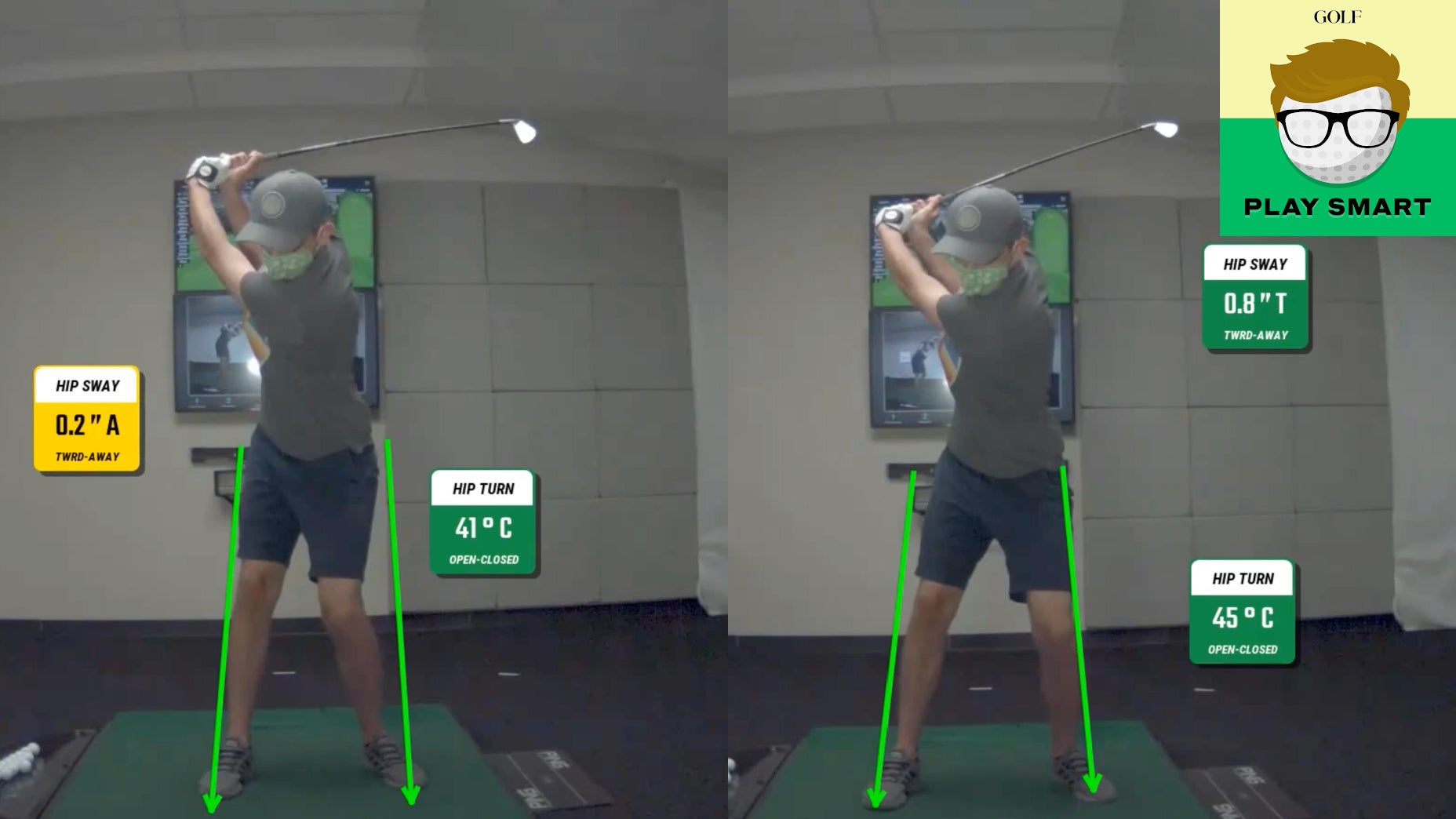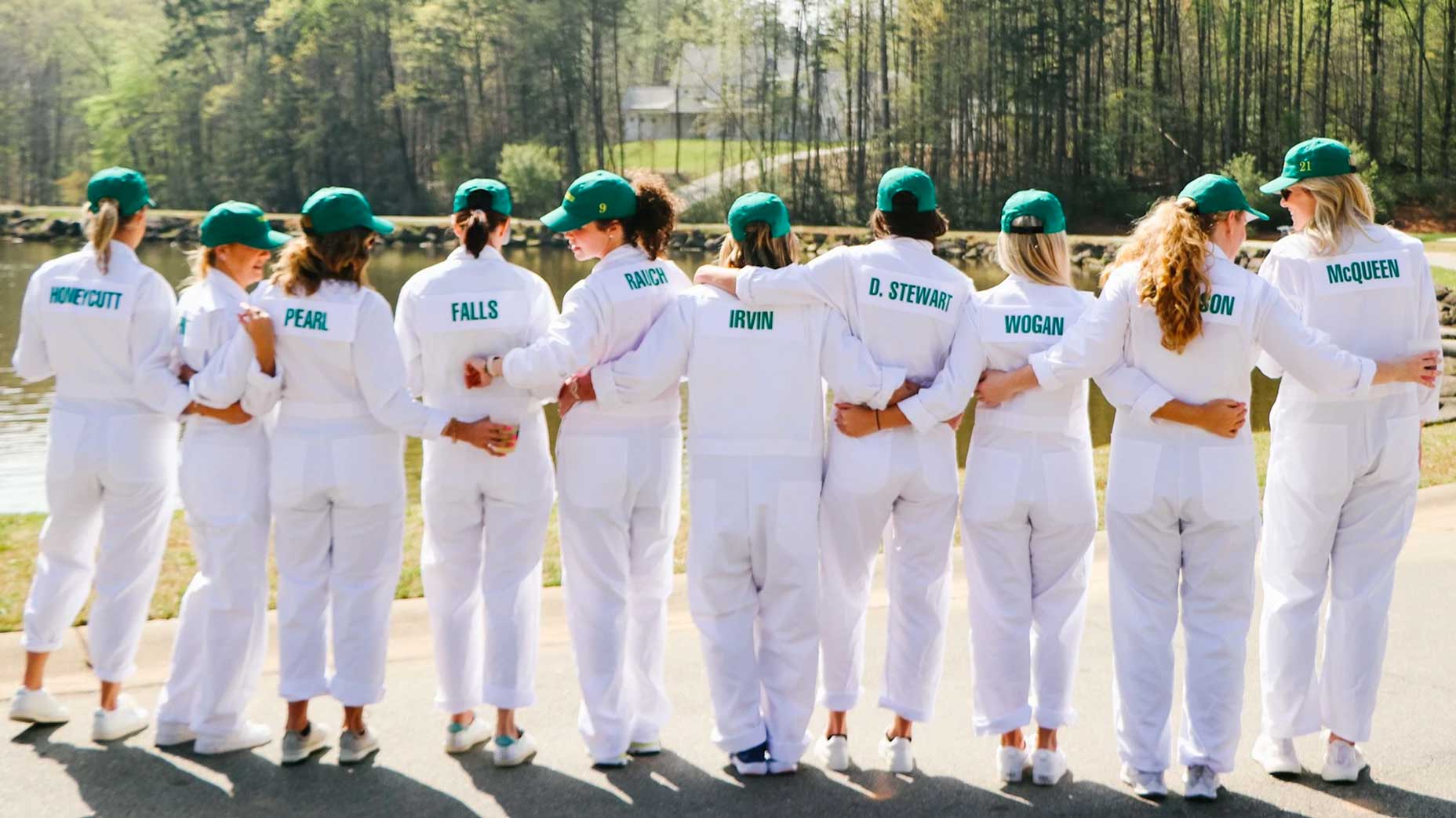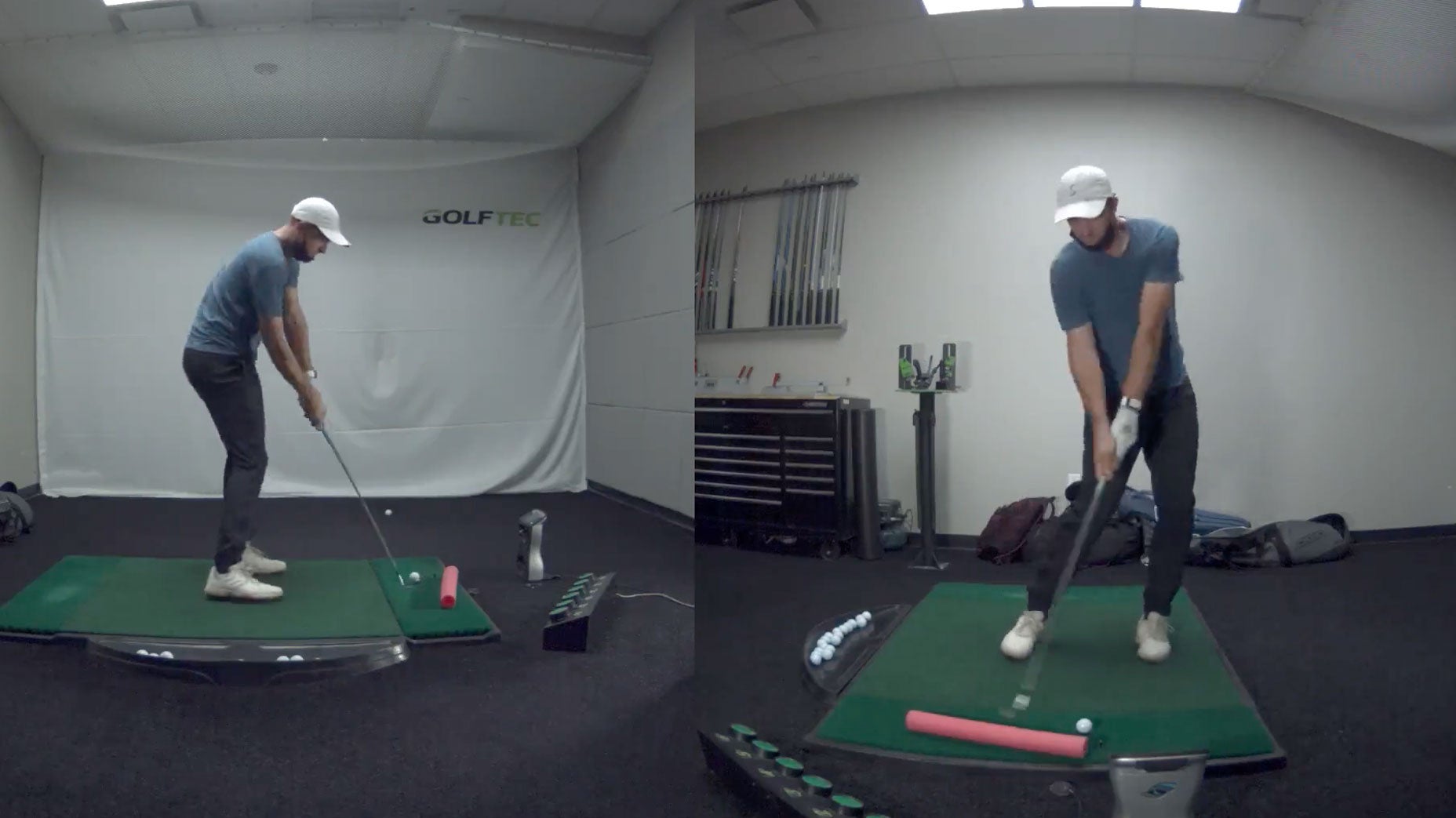
The author’s contact position with his arms is much stronger than it was at the beginning of GolfTEC lessons.
GolfTEC
Once a year, every year, I’ve needed to step away from the game. Not a full-on quit, but a sustained break from golf. A temporary relief for two months. That happens when you spend 12 straight years hovering as a 10 handicap.
The breakdown of my game was simple: I swing with the speed of a professional but with the swing path of an amateur — a holdover from my years playing baseball. My mind was convinced that the most efficient path from Point A (top of the backswing) to point B (contact with the ball) was a straight line. I often rushed through the transition, eager to smash the ball, throwing my hands at it and wiping across the face of the club, a little too close to the hosel. My hand-eye coordination was strong enough, but with just a little hip sway in my swing, my contact was inconsistent. For every laser was a series of fatted irons, thinned wedges, and a tee ball that twice a round (and sometimes more) would travel DEEP TO RIGHT FIELD. Add it all up and I carded many 88s, a handful of 83s, and once a year, every year, consecutive 97s that made me step away from it all.
This summer, I haven’t had to. There has been no mid-August collapse. It’s been only, “When are we teeing it again?” followed by weekly practice sessions.
Why? There have been signs of improvement. Just enough of it to become sickly addicted to updating my index.
How? It starts with my man TJ Sullivan at GolfTEC.
From Day 1, Sullivan knew I was tired of hitting wipey cut shots and was ready to start drawing the ball. Within 20 minutes of seeing my swing, he had a multiple-step plan to level out my inconsistencies. The end result is that even for those who have never hit the ball from right to left, there’s hope! Committing to a handful of lessons can make it happen. You can watch my progression through four GolfTEC lessons below.
Step 1: Eliminate sway
The baseball dilemma afflicts many of us. We spent our youth loading up our weight onto our back foot as the pitcher reared forward, only to launch forward and slap the bat on the ball with our arms mostly extended. It’s an extremely difficult motion to suddenly avoid on the golf course. Some sway is okay, natural and athletic. A lot of sway is no good.
In order to rid my swing of the sway, Sullivan simply had me line up perpendicular to the wall in the GolfTEC studio, and asked me to take my typical backswing while keeping my left hip as close to the wall as possible. If I was able to do that and maintain good rotation, the unwinding of that motion would help deliver the clubhead back to where it came from — right behind the golf ball. At first, this can create a bit of a rigid move, trying to stay next to the wall, but eventually there’s a level of comfort achieved with that swing thought. On to the next!
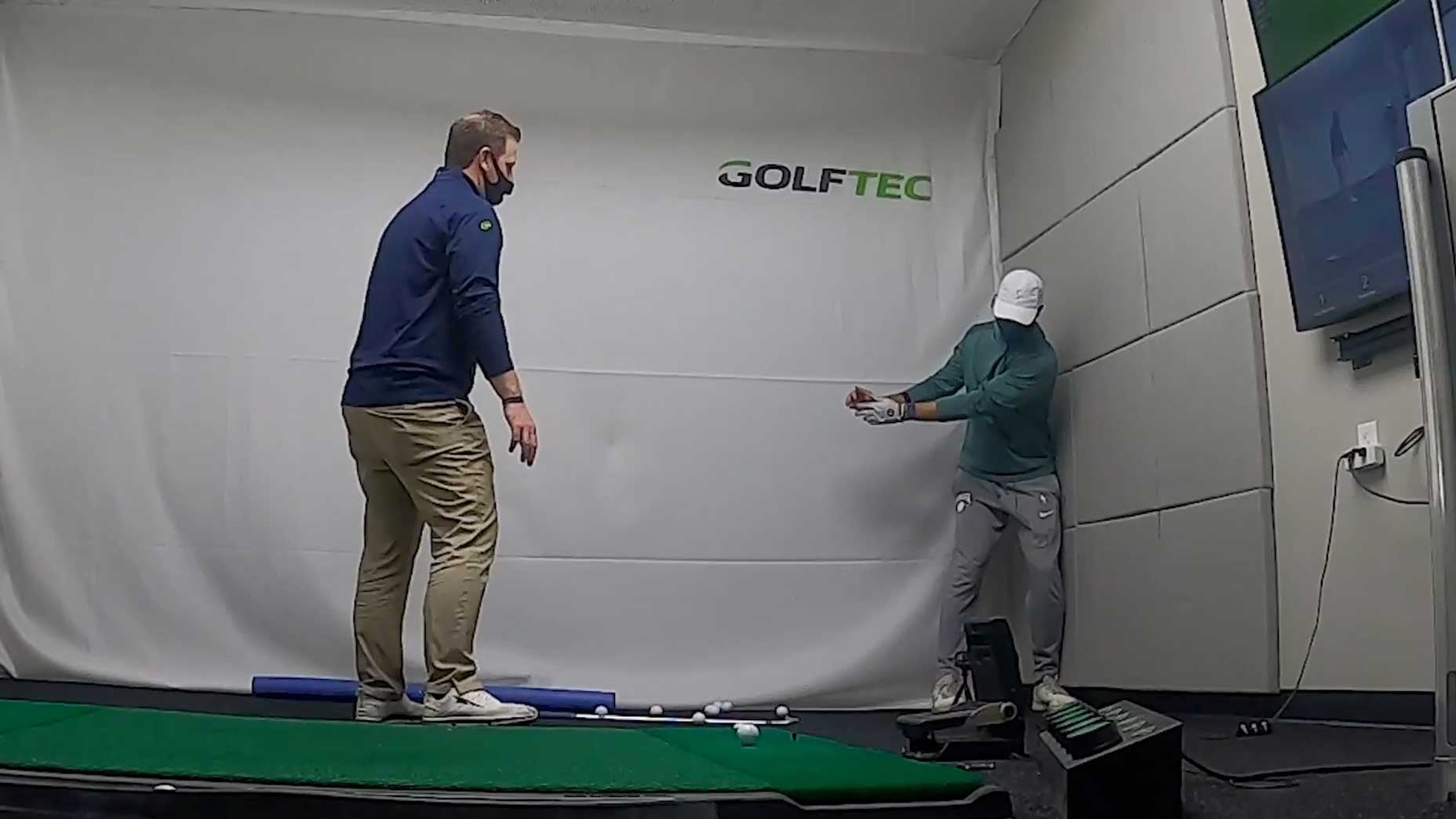
TJ Sullivan’s fix for my excessive amount of sway? Keep that left hip on the wall.
Sean Zak
Step 2: Stand closer to the ball
Yes, that’s it. The most simple change one can make with the golf swing happens before the swing even begins. It’s in the setup, and I had grown accustomed to standing about three inches too far from the golf ball. I was always reaching for it, and why? There’s comfort for baseball players to have both their arms fully extended at contact. Golfers don’t need that, and it was news to me. It came in a harrowing lesson where Sullivan sprayed down my 7-iron to show exactly where my contact mostly was on the clubface: extremely near the hosel.
Stepping closer to the ball would require my right arm to remain bent at contact, and my left to even be slightly bent itself. There’s strength in that. Literally. When your hands are extended as far as possible from the body, your arms are in a weaker position than when your arms are a little cocked, closer to the center of your frame, with your biceps engaged and body rotated. You see it most obviously in Brooks Koepka’s swing.
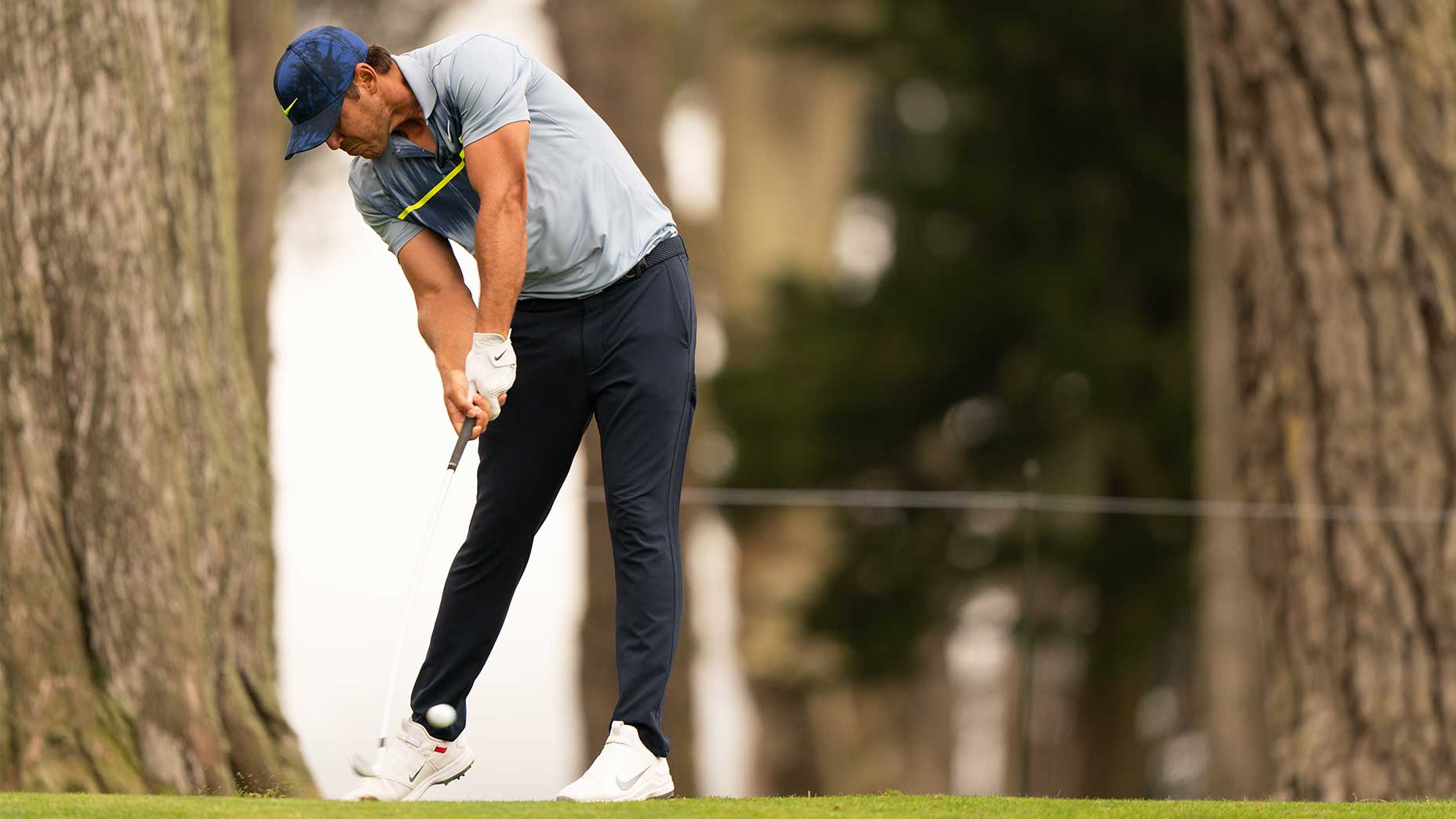
Step 3: Rerouting the path of my hands
Speaking of the hands, we needed to get mine more comfortable being closer to my body. ‘Slotting’ them, to use Tour lingo, onto a path that leads the clubhead to move inside-out as it sweeps through the hitting zone. For someone who constantly rushed from top of my swing to contact, this was going to be the ultimate feel vs. real scenario. Sullivan would ask me to reach the top of my backswing and then grab and hold my shoulders. He would not allow my shoulders to uncoil until my hands started down and inside first. It took a number of reps, in which I fought hard against that resistance. As it turns out, he’s quite strong! But after a few attempts, suddenly it began to make sense.
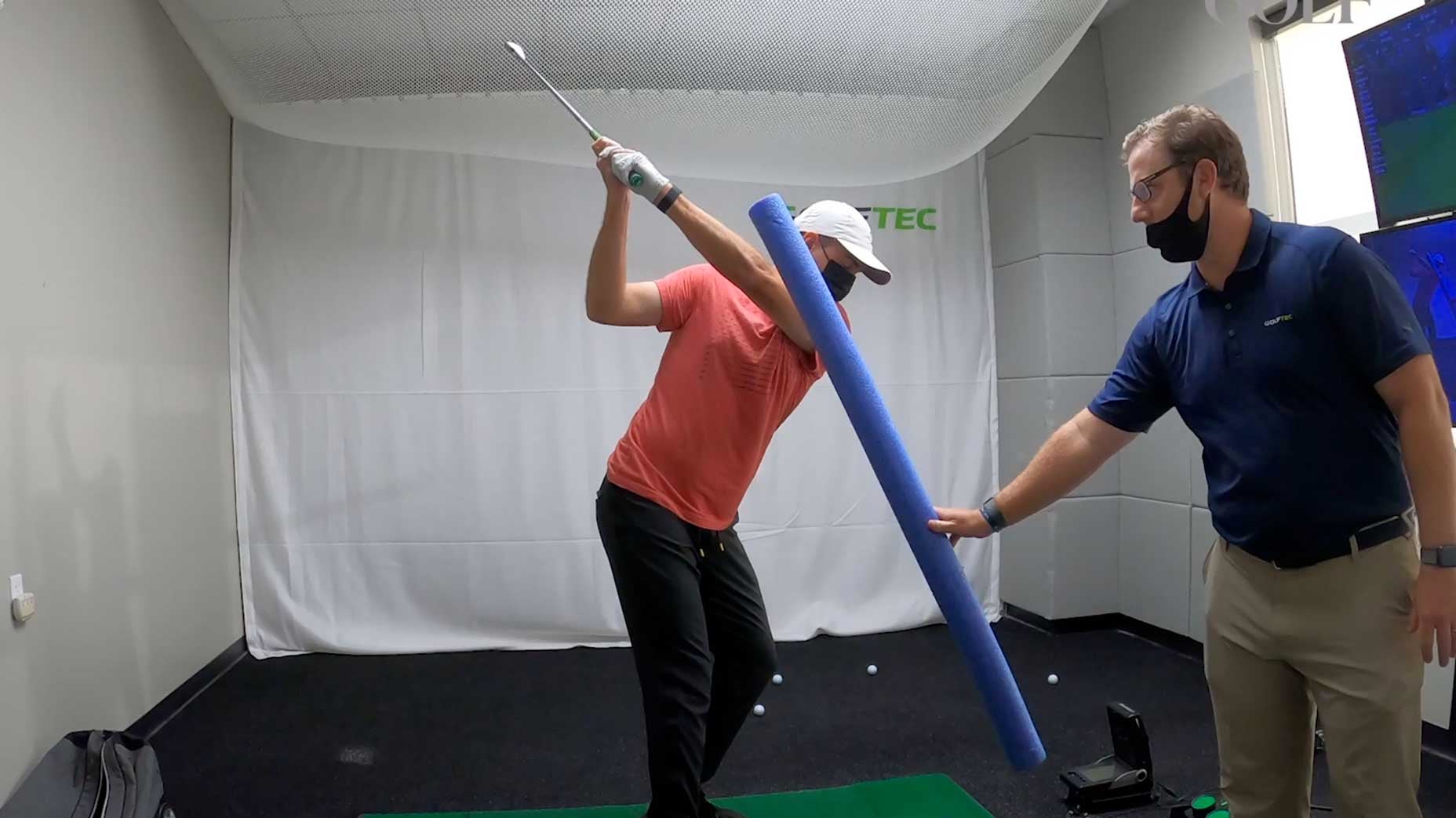
Sullivan used a noodle that was just in my periphery. It took me many swings to actually hit the ball clean without touching the noodle on the downswing. That’s a hands-slotted type of swing thought.
Sean Zak
After that struggle, Sullivan resorted to holding a pool noodle just on the edge of my periphery. Miss the pool noodle first –> hit the ball second. If any part of my body fired too quickly before my hands, I would catch the noodle. It was a pretty valuable trick! From the top of my swing, my hands have become the starter switch that tells the rest of my body ‘Go for it, bud. You can swing now.’
The results have been slow … but real
I began this conquest as a 9.8 handicap, which has slowly been lowered over the course of six months to a 7.8. The GolfTEC Effect! Perhaps the Sullivan Effect. Who knows! The numbers speak for themselves, though. And mostly, the number I’ve cared about most is the number of triple bogeys on the scorecard. A newly dialed path and tamed level of sway have kept the DEEP TO RIGHT tee balls to a minimum. Double bogeys are going to happen, sure, but taking the big number off the scorecard has had me flirting with 79 a lot more, and avoiding 90+ almost every time out.
Progress, folks! It looks different for everyone.
All of our market picks are independently selected and curated by the editorial team. If you buy a linked product, GOLF.COM may earn a fee. Pricing may vary.
Try OptiMotion at a GolfTec near you
Fill out this form to book a swing evaluation or club fitting and begin your journey to better golf.


